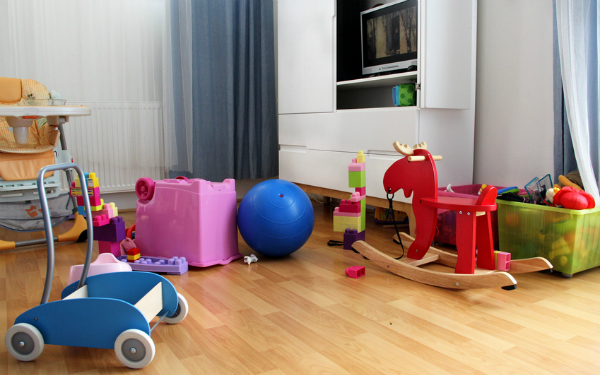
Professionals have been criticised by a serious case review for missing opportunities and focusing on the mother in a case where a child died.
A review into the death of Christopher Ostle, a three-month-old baby in Doncaster, said that due to the complex needs of his young mother Laura the voices of the children were not heard when they were met by social workers and health professionals.
“Any actions or proposed actions were about her and not [the children],” the review said.
Non-compliance
Children’s voices not being heard included the mother who was a child when the period leading up to Christopher’s death started, the review’s author said.
The mother had a history of mental health concerns relating to depression, and multiple agencies noted her lack of engagement, non-compliance and “transient lifestyle”. Agencies struggled to understand the complex needs she presented.
“The persistent health visits and comments about what was wrong with her, and the euphoric mother she portrayed to professionals, could have been considered as indications of someone who may be at risk to a child of fabricating or inducing illness,” the review said.
Christopher was the youngest of two children. He died of a head injury in September 2014 after being “violently” shaken by James Larkin, the mother’s partner. Larkin was charged and convicted of manslaughter and perverting the course of justice last week. The mother was also found guilty of perverting the court of justice. The pair were sentenced to 12 years and 18 months in prison respectively.
The serious case review noted a lack of clear understanding of thresholds by professionals, and said there was uncertainty about whether a referral made to children’s social care was a referral or not.
Lacking curiosity
A lack of curiosity by professionals was also criticised. “There is no sense that they sought to understand what was going on with the family,” the review said.
There was a “missed opportunity”, when a second written referral, which followed escalating concerns from the community midwife service, was made to children’s social care. The review found this was not “inputted” for five days, during which time Christopher was born.
“It is clear that if an assessment had taken place at the point of referral, with appropriate included multi-agency involvement and information sharing, a full picture would have been obtained.”
The review also found a “worrying” lack of information about Larkin. He was not the children’s biological father but was acting as a parent and carer.
No assessments
“It would appear that no assessments were made as to whether [Larkin’s] health issues impacted on his ability to care for the children and this should have been considered in light of the child in need status,” said the review.
He was due to receive treatment with psychological therapies for recurring headaches and blackouts and was also taking medication, “which may have been for epilepsy or pain management, the notes did not make this clear”.
“Poor sharing of information did not assist in this. It is also felt that at times there was too much focus on [the mother] which may have caused [Larkin] to believe his role as carer was not important.”
The report said information sharing barriers “must be overcome”.
A professional who took part in the review said it felt like “we were all doing our own little bit”.
Neglect
The review recommended that Doncaster Safeguarding Children Board (DSCB) ensures all professionals are able to deal with the risks associated with neglect, and are able to provide an effective response to them.
Doncaster Children’s Trust, which did not run children’s services at the time of Christopher’s death, should also “assure itself that all contacts from professionals are documented on social care records”.
Distressing
John Harris, independent chair of DSCB, said the case was “very distressing”.
“The findings and recommendations from this review are of huge importance locally in Doncaster and are informing the drive to improve safeguarding across the borough,” Harris said.
“As recognised by DSCB in its annual report, and in the recent reviews by Ofsted and the Local Government Association, there have been significant improvements since 2014, but there is still more to do.
“The priority now is to ensure improvements are sustained and embedded. We are establishing practices and procedures to better protect children like [Christopher]. Systems have been put in place to improve the understanding and assessment of risk, and to promote professional curiosity so that it becomes second nature for professionals to ask the right questions.”


 Bournemouth, Christchurch and Poole
Bournemouth, Christchurch and Poole  Hampshire County Council
Hampshire County Council  Lincolnshire County Council
Lincolnshire County Council  Norfolk County Council
Norfolk County Council  Northamptonshire Children’s Trust
Northamptonshire Children’s Trust  South Gloucestershire Council
South Gloucestershire Council  Wiltshire Council
Wiltshire Council  Wokingham Borough Council
Wokingham Borough Council  Children and young people with SEND are ‘valued and prioritised’ in Wiltshire, find inspectors
Children and young people with SEND are ‘valued and prioritised’ in Wiltshire, find inspectors  How specialist refugee teams benefit young people and social workers
How specialist refugee teams benefit young people and social workers  Podcast: returning to social work after becoming a first-time parent
Podcast: returning to social work after becoming a first-time parent  Podcast: would you work for an inadequate-rated service?
Podcast: would you work for an inadequate-rated service?  Family help: one local authority’s experience of the model
Family help: one local authority’s experience of the model  Workforce Insights – showcasing a selection of the sector’s top recruiters
Workforce Insights – showcasing a selection of the sector’s top recruiters 

 Facebook
Facebook X
X LinkedIn
LinkedIn Instagram
Instagram
Comments are closed.